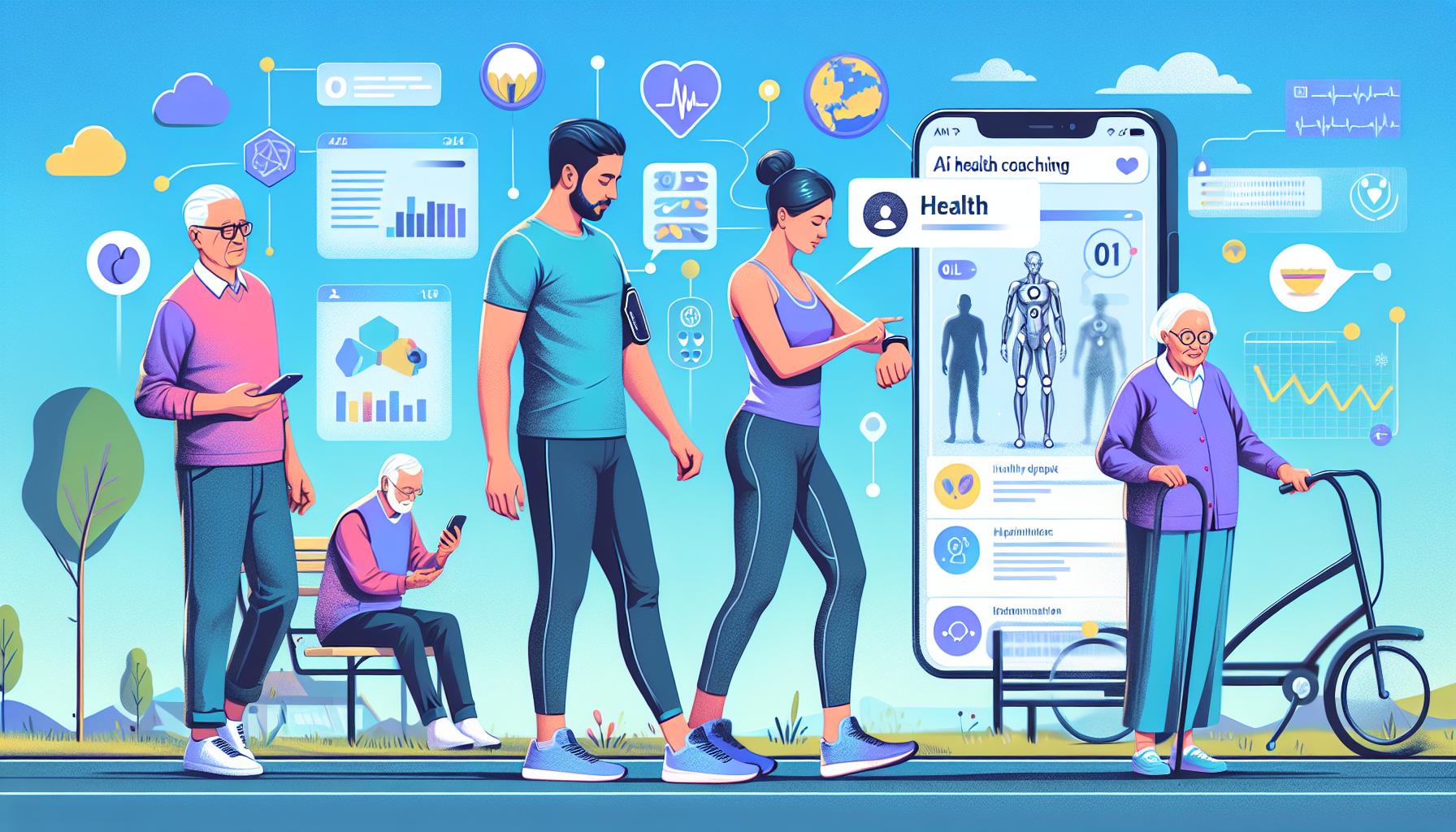Exploring the Collaboration Between OpenAI and Thrive Global: Behavior Changes and AI Health Coaching

Introduction
The intersection of Artificial Intelligence (AI) and healthcare is evolving rapidly with recent developments proving transformative. One such significant collaboration is between OpenAI and Thrive Global, aimed at launching an A.I. health coaching company named Thrive A.I. Health. This blog delves into the details, methodologies, and potential challenges of deploying AI-powered health solutions.
OpenAI and Thrive Global Partnership
The partnership between OpenAI and Thrive Global was announced by Sam Altman and Arianna Huffington through a post in Time magazine. The core objective of Thrive A.I. Health is to utilize A.I. technologies to assist users in managing chronic diseases and improving overall wellness through behavior modification. This effort is not just about technology but has a profound mission of making essential healthcare accessible and personalized.
Thrive A.I. Health: Hyper-Personalized Guidance
Thrive A.I. Health aims to offer hyper-personalized coaching by leveraging a combination of peer-reviewed scientific insights and Thrive Global's behavior change methodologies, known as Microsteps. These Microsteps involve small, manageable actions that can lead to significant improvements in areas such as sleep, diet, physical activity, stress management, and social interactions. The A.I. health coach will integrate users' medical data, habits, and preferences to deliver bespoke nudges and advice.
Funding and Leadership
This ambitious initiative is jointly funded by OpenAI Startup Fund and Thrive Global. DeCarlos Love, formerly associated with Google, has been appointed as the CEO of Thrive A.I. Health. Such high-profile leadership underscores the commitment to achieving substantial impact in the health sector through AI.
Significance of A.I. Health Coaching
The introduction of an A.I. health coach represents a significant shift in the role of A.I. within healthcare - from primarily focusing on drug discovery to directly influencing personal behavior and wellness. This democratizes access to resources typically available only to those who can afford personal trainers or life coaches, potentially leading to better management of chronic illnesses on a larger scale.
The Mechanics of Microsteps
Thrive's behavior change methods, summarized under the term Microsteps, are grounded in the principle of making incremental yet meaningful changes. Each Microstep is a small, actionable task designed to be easily integrated into daily routines, thereby facilitating habit formation and long-term behavior change. This methodological framework is rooted in established psychological and behavioral research, ensuring that the steps recommended by the A.I. coach are both effective and scientifically sound.
Ensuring Privacy and Security
One of the critical concerns with the deployment of A.I. in health coaching revolves around the privacy and security of users' medical data. Thrive A.I. Health is expected to implement robust data protection measures compliant with industry standards and regulations such as HIPAA. These measures will likely include data encryption, anonymization, secure data storage, and access controls to ensure the confidentiality and integrity of personal health information.
Challenges in Widespread Adoption and Efficacy
Despite the promising potential of Thrive A.I. Health, several challenges could impede its widespread adoption and efficacy. These include:
- Data Privacy Concerns: Ensuring user trust in how their sensitive health data is handled and stored.
- User Engagement: Sustaining user engagement over the long term to ensure continuous adherence to AI-driven advice.
- Accessibility: Making the technology accessible to diverse populations, including those in lower socio-economic brackets or with limited technological proficiency.
- Accuracy and Reliability: Ensuring the accuracy of health recommendations and the reliability of the A.I. system to avoid misleading or ineffective guidance.
- Cultural Sensitivity: Offering culturally sensitive advice that resonates with users from different backgrounds and lifestyles.
Other Developments in the A.I. Space
Beyond the OpenAI and Thrive Global collaboration, several other noteworthy advancements are taking place in the A.I. domain:
- Poe has introduced Previews, which are interactable web apps created during A.I. chats that can be shared and viewed online.
- OctoAI is offering live sessions focusing on how to build A.I. agents with function calling, enhancing the practical applications of AI.
- Innovative tools like Odyssey for visual AI, Micro-agent for auto-generating code that passes unit tests, and AudioScribe for turning fragmented thoughts into organized notes are also gaining traction.
Recent News Highlights
Recent news in the A.I. sector includes Hebbia securing $130M in Series B funding led by a16z, Meta's MobileLLM initiative for running large language models on smartphones and edge devices, and the New York Times' paradoxical relationship with OpenAI—suing the company while simultaneously experimenting with its writing capabilities.
Conclusion
The collaboration between OpenAI and Thrive Global in launching Thrive A.I. Health marks a pivotal development in the realm of AI-driven healthcare. By focusing on behavior change and leveraging A.I. technologies, this initiative could potentially revolutionize how chronic illnesses are managed and how wellness is promoted on a daily basis. However, addressing challenges related to data privacy, user engagement, and cultural sensitivity will be crucial for the success and widespread adoption of this innovative health coaching solution.

 ™
™

